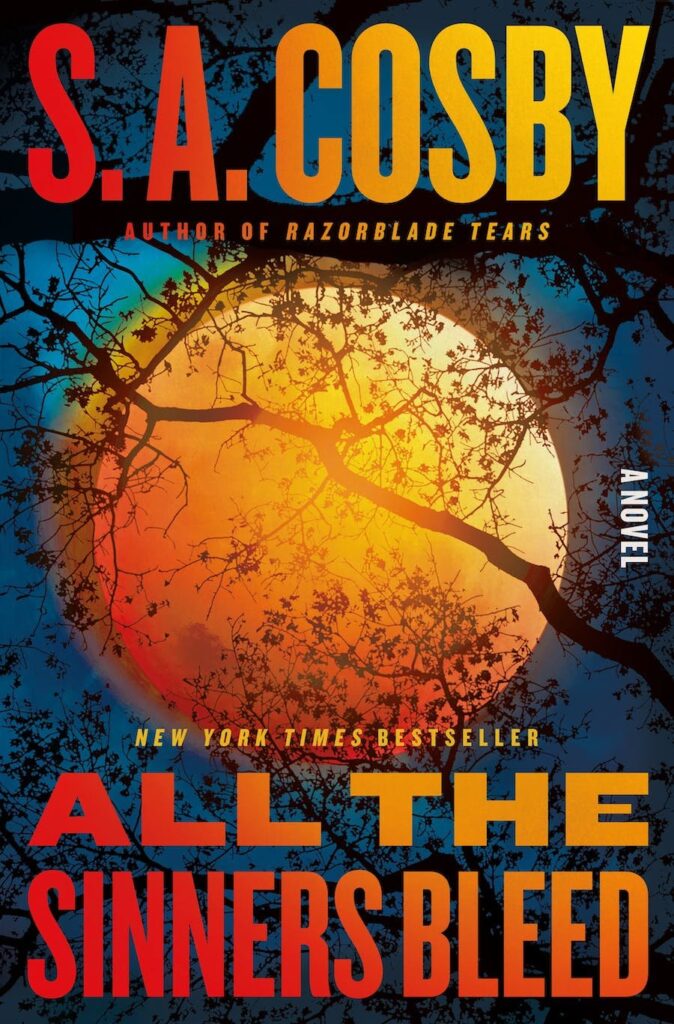“All the Sinners Bleed”
S.A. Cosby, Flatiron Books (2023)
352 pages, $27.99
Flannery O’Connor described the American South as “Christ-haunted.” Her analysis, juxtaposed against a society that claims to be Christ-centered, comes alive in S.A. Cosby’s newest novel, “All the Sinners Bleed.”
The book opens with an overview of the history of Charon County, Virginia, a place where white landowners ran the last remaining indigenous inhabitants out of town by setting fire to their land. Residents would describe Charon County as a quiet community with minimal problems, despite the fact that drugs have ravaged the community’s poorest families.
Even though the county is majority Black, Titus Crown, the protagonist of the story, is the first Black sheriff in the county’s history.
Crown, who stopped believing in God following the death of his mother, struggles to gain his constituents’ acceptance. Those who are inclined to judge people based on the color of their skin instinctively distrust him, while people of color distrust him because of his identity as law enforcement. Crown is particularly confounded by this latter rejection because he returned to his hometown specifically with the goal of achieving racial harmony in the community.
When Titus Crown receives a call about a shooting at the local high school, the community is no longer able to close its eyes to the evil that has taken hold of them. The two victims of the shooting are a beloved White veteran geography teacher and a young Black man, the shooter who was killed at the hands of Charon County police. Before long, the teacher’s dark private life comes to light and the bodies of seven Black children are discovered.
As the story unfolds, there are few plot twists and, in hindsight, the story is what one might expect from a crime novel featuring racial tension as one of its key elements. In fact, that is the brilliance of Cosby’s storytelling — the foreseeable consequences of a culture where evil has been allowed to flourish provide shock value in and of themselves.
“All the Sinners Bleed” begins with an epigraph from Revelation: “Behold, I make all things new.” This quote lends a curious hopefulness to the story of Charon County that would more predictably be described by Ecclesiastes: “What has been will be again, what has been done will be done again; there is nothing new under the sun.”
Like many who have suffered, Sheriff Crown disavows God as having a loving plan for humanity. Without an omnipotent God as his higher power, Crown sees the sins of his neighbors as the power that has ruled and continues to weaken his community; he rightly sees that the power can and must be expelled. His mistake, however, lies in believing that he can undo the centuries of trauma and hate that have penetrated the hearts of his neighbors all by himself, through his elected position.
The hypocrisy of Christians is a theme found throughout “All the Sinners Bleed,” but must not be confused with the abandonment of the God who loves his children, most especially those who cry out to him in pain. In the end, Cosby makes a powerful statement that the only one who can change hearts is God himself, whether we believe in him or not.
When deciding whether to read “All the Sinners Bleed,” readers should be aware that the pages contain graphic descriptions of violent deaths. These descriptions serve to reinforce the evil that is present in Charon County but may be disturbing to some readers.
‘All the Sinners Bleed’: Searing novel explores ‘Christ-haunted’ American South

